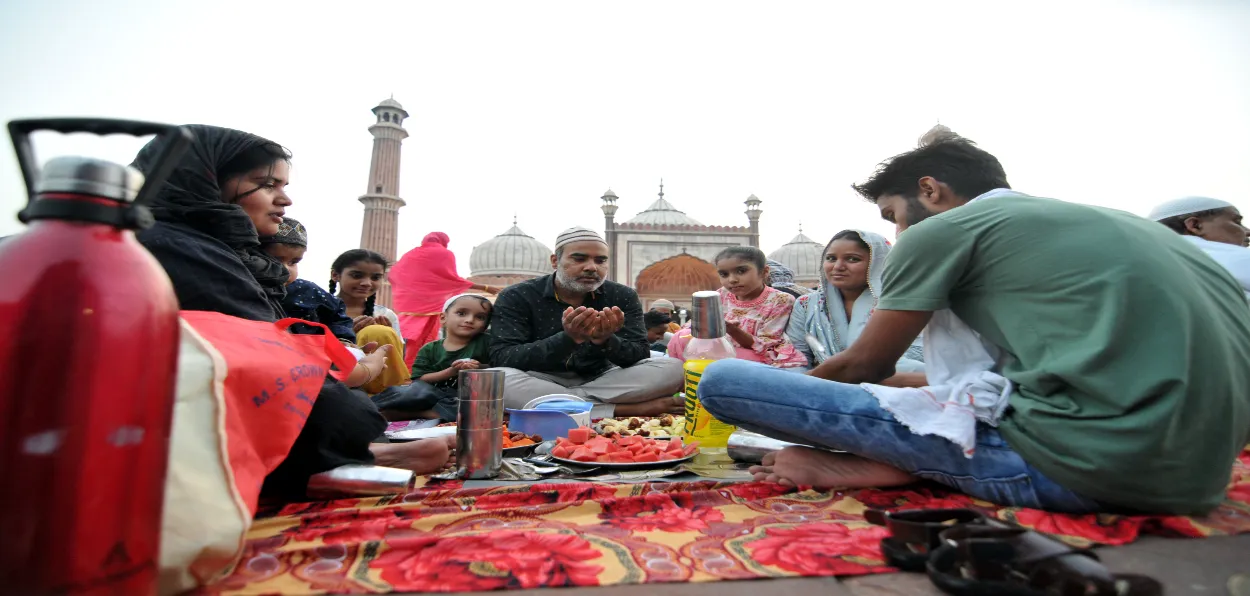
New Delhi
After the Garba dance of Gujarat held during the Navratri festival, UNESCO has also included Iftar, a practice of breaking the fast by Muslims all over the world daily during the month of Ramazan, in the representative list of intangible cultural heritage.
The claim for it was jointly presented to the United Nations Educational, Scientific, and Cultural Organization by Iran, Turkey, Azerbaijan, and Uzbekistan.
According to UNESCO, IftarIftar/Eftari/Iftar/Iftor is celebrated by Muslims at sunset in the month of Ramadan, after the completion of all religious and ceremonial rituals.This kind of listing is also called Living heritage list.
🔴 BREAKING
— UNESCO 🏛️ #Education #Sciences #Culture 🇺🇳 (@UNESCO) December 6, 2023
New inscription on the #IntangibleHeritage List: Iftar/Eftari/Iftar/Iftor and its socio-cultural traditions, #Azerbaijan 🇦🇿, Islamic Republic of #Iran 🇮🇷, #Türkiye 🇹🇷, #Uzbekistan 🇺🇿.
Congratulations!https://t.co/c2HMPpStCA #LivingHeritage pic.twitter.com/VKd2O6UNxG
Iftar marks the end of the daily challenge of fasting from dawn to sunset for people of all ages, genders, and backgrounds. In Muslim countries, during the days of Ramadan, activities such as prayer ceremonies, music, storytelling, games, preparation and serving of traditional and local food, and marriage arrangements are organized after the evening prayers. Later it often takes the form of meetings or communal meals.
The UNESCO said: "Iftar strengthens family and community bonds. Promotes charity, solidarity, and social exchange. Iftar-related ceremonies and rituals are also performed by those who do not necessarily fast during the month of Ramadan. Knowledge and skills are generally transmitted within families through oral instruction, observation, and participation.
Children and youth are often tasked with preparing the components of a traditional meal. During this process, parents also disseminate knowledge about the benefits of fasting and the social values and functions of Iftar. Iftar is often supported by government institutions, NGOs, and charitable organizations as well as through television, radio, press, and social media.
UNESCO said, Iftar is celebrated by Muslims at sunset in the month of Ramadan, after the completion of all religious and ceremonial rituals. Due to this, the age-old community tradition has been recognized by the Intergovernmental Committee for the Safeguarding of Intangible Cultural Heritage, whose meeting took place in Botswana on Monday. In many Muslim countries, it is customary to break Iftar by eating dates with tea. However, recipes for dishes and pastries vary greatly depending on the country.
ALSO READ: Badalta Kashmir: Rap sensations Humaira and MC Raa sang what they saw around
The UN body said the iftar tradition is typically transmitted within families, and children and youth are often tasked with preparing components of the traditional meal.
